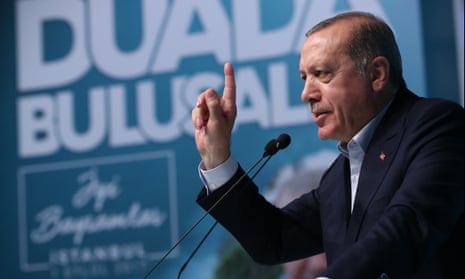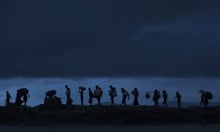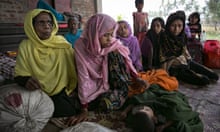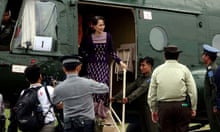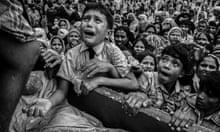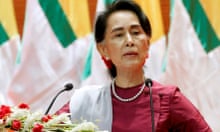Turkish President Recep Tayyip Erdoğan has accused Myanmar of “genocide” against the Rohingya Muslim minority, who have fled in the tens of thousands across the border into Bangladesh to escape ethnic violence.
“There is a genocide there,” Erdoğan said in a speech in Istanbul during the Islamic Eid al-Adha feast, which commemorates Abraham’s willingness to sacrifice his son.
“Those who close their eyes to this genocide perpetuated under the cover of democracy are its collaborators.”
Almost 400 people have died in violence in the north-western Rakhine state that Myanmar’s military said was triggered by attacks on security forces by insurgents from the Rohingya ethnic minority.
The army’s statement said there had been 90 armed clashes, including an initial 30 attacks by insurgents on 25 August, making the combat more extensive than previously announced. The army, responding to the attacks, launched what it called clearance operations against the insurgents.
Advocates for the Rohingya say security forces and vigilantes attacked and burned villages, shooting civilians and causing others to flee. Hundreds of civilians were killed, they say, posting photos, videos and details on social media as evidence.
Such reports have further amplified tensions, raising fears that communal violence in Rakhine is spinning out of control.
To escape the violence, about 20,000 Rohingya have massed along the Bangladeshi frontier, barred from entering the south Asian country, while scores of desperate people have drowned attempting to cross the Naf, a border river, in makeshift boats.
Erdoğan said he would bring up the issue at the next UN general assembly in New York later this month, adding that he had already talked to the UN secretary general, Antonio Guterres, as well as other Muslim leaders.
According to the state-run Anadolu news agency, the Turkish foreign minister Mevlut Cavusoglu told Bangladeshi authorities to “open your doors”, adding Turkey would cover the costs associated with letting in more Rohingya.
Bangladesh already hosts 400,000 Rohingya and has said it does not want more.
“We have called upon the Organization of Islamic Cooperation,” Cavusoglu said. “We will organise a summit this year [on the issue] … we have to find a definitive solution to this problem.”
The UN security council met behind closed doors on Wednesday to discuss the violence but there was no formal statement.
On Friday Guterres said he was “deeply concerned” by the situation in Myanmar and called for “restraint and calm to avoid a humanitarian catastrophe”.
The Rohingya are subject to harsh treatment in Myanmar, where the community of roughly one million people are accused of being illegal immigrants from Bangladesh.
Longstanding tension between the Rohingya Muslims and Buddhists erupted in bloody rioting in 2012, forcing more than 100,000 Rohingya into displacement camps, where many still live.
As the refugees poured across the border into Bangladesh, a police official in Cox Bazar’s Teknaf area said 21 bodies of Rohingya were found floating in the Naf River. Mohammed Mohiuddin Khan said two of them had bullet wounds.
On Thursday, three boats with refugees capsized, killing at least 26, including women and children, police said.
“The government has to stop this offensive,” said Phil Robertson, deputy Asia director for Human Rights Watch. “It has to allow humanitarian assistance and let journalists into this area. We have to actually see what’s happened because quite clearly human rights violations have taken place.”
He said it was possible that violations had occurred on both sides.
The UN special rapporteur on the human rights situation in Myanmar, Yanghee Lee, expressed concern “that many thousands of people are increasingly at risk of grave violations of their human rights.”
The UN secretary general also urged restraint by Myanmar security forces, a spokesperson said in a statement. “The current situation underlines the urgency of seeking holistic approaches to addressing the complex root causes of violence,” Eri Kaneko said.
Agence France-Presse and Associated Press contributed to this report
